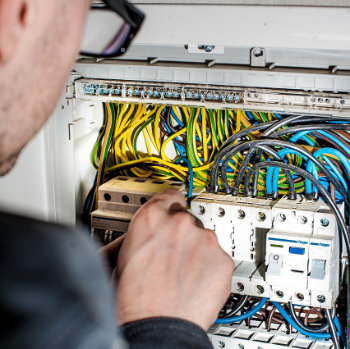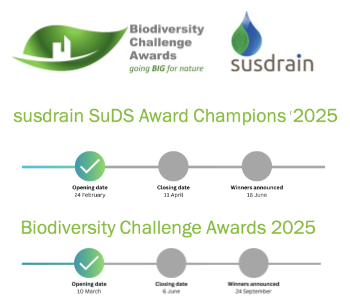Smart HVAC Controls Market
The Smart HVAC Controls Market is to hit US$25bn by 2024. The HVAC control system market will grow significantly over the forecast period due to an increasing need to reduce energy consumption.
Energy efficiency is one of the key concerns for both new construction and renovated buildings. These systems use technologies, such as Demand Control Ventilation (DCV) and Variable Air Volume (VAV), that can be extended with smart devices such as smart thermostats and monitoring tools. These systems allow the monitoring and analysis of data relating to energy consumption and future energy requirements.
The growing use of smartphones and the proliferation of Internet of Things (IoT) devices in households is driving the HVAC control system market growth. The integration of these systems with the smartphones allows remote access that enhances the user experience. Furthermore, the increasing use of sensors is allowing software integration with these systems, making them more intelligent.
HVAC control system market, by product:
- Thermostats
- Smart air vents
- Others
HVAC control system market, by application
Lack of awareness regarding these systems will restrain the HVAC control system market growth. The initial cost of installation is high, discouraging users from implementing these systems. However, governments of several countries are setting up guidelines to encourage users and spread awareness regarding long-term cost savings from the use of these systems.
Technological advancements such as geothermal heating and cooling in these systems is one of the key trends influencing the HVAC control system market. These systems are efficient, eco-friendly solutions, as they reduce the carbon footprint substantially. They are durable and low-maintenance. Zoning systems are being increasingly used in large establishments such as commercial buildings and industry. These units are particularly designed to cool the isolated units of a building.
Smart thermostats are expected to have a significant revenue share in the HVAC control system market as they can be used with home automation devices and are highly efficient. They can be used in standalone mode by integrating with other smart home devices. Companies including Ecobee, Honeywell, and Nest Labs are developing differentiated products that use technologies such as geofencing to enhance performance. Manufacturers in the market are implementing the technology to enhance functionality of the products and improve user experience. For instance, the Emerson Sensi allows integration with smart devices such as Alexa Voice Assistant and the Apple Home Kit.
The industrial HVAC control system market is anticipated to grow significantly over the forecast time due to the high demand from industrial buildings to save energy and reduce costs. These systems intelligently match energy generation requirements with usage and distribution. The companies in industrially-developing countries including China, Japan, and India are focusing on providing a work environment conducive to enhancing the efficiency of employees, thereby propelling the demand for these systems.
The North America HVAC control system market will grow rapidly over the forecast period due to the large-scale adoption of smart homes in this region. The growing demand for enhancing energy efficiency in buildings is encouraging users to implement these systems in new buildings and retrofits.
Key vendors in the HVAC control system market include: Honeywell International, Johnson Controls, Lennox, Ecobee, Siemens, Emerson Electric, Schneider Electric, and Distech Controls. These companies are increasingly investing in developing differentiated solutions to gain a competitive advantage. Companies including Nest Labs are connecting these devices to centralised servers with BI capabilities to enhance user experience. Technology providers such as Google are entering the industry to develop high-end products. For instance, Google has developed Google Nest and Google Nest E that offers an app-based model and compatibility with smart home devices.
[edit] Related articles on Designing Buildings Wiki
Featured articles and news
Insights of how to attract more young people to construction
Results from CIOB survey of 16-24 year olds and parents.
Focussing on the practical implementation of electrification.
Sustainable Urban Drainage and Biodiversity
Awards for champions of these interconnected fields now open.
Microcosm of biodiversity in balconies and containers
Minor design adaptations for considerable biodiversity benefit.
CIOB student competitive construction challenge Ireland
Inspiring a new wave of Irish construction professionals.
Challenges of the net zero transition in Scotland
Skills shortage and ageing workforce hampering Scottish transition to net zero.
Private rental sector, living standards and fuel poverty
Report from the NRH in partnership with Impact on Urban Health.
.Cold chain condensing units market update
Tracking the evolution of commercial refrigeration unit markets.
Attending a conservation training course, personal account
The benefits of further learning for professsionals.
Restoring Alexander Pope's grotto
The only surviving part of his villa in Twickenham.
International Women's Day 8 March, 2025
Accelerating Action for For ALL Women and Girls: Rights. Equality. Empowerment.
Lack of construction careers advice threatens housing targets
CIOB warning on Government plans to accelerate housebuilding and development.
Shelter from the storm in Ukraine
Ukraine’s architects paving the path to recovery.
BSRIA market intelligence division key appointment
Lisa Wiltshire to lead rapidly growing Market Intelligence division.
A blueprint for construction’s sustainability efforts
Practical steps to achieve the United Nations Sustainable Development Goals.
Timber in Construction Roadmap
Ambitious plans from the Government to increase the use of timber in construction.
ECA digital series unveils road to net-zero.
Retrofit and Decarbonisation framework N9 launched
Aligned with LHCPG social value strategy and the Gold Standard.
























